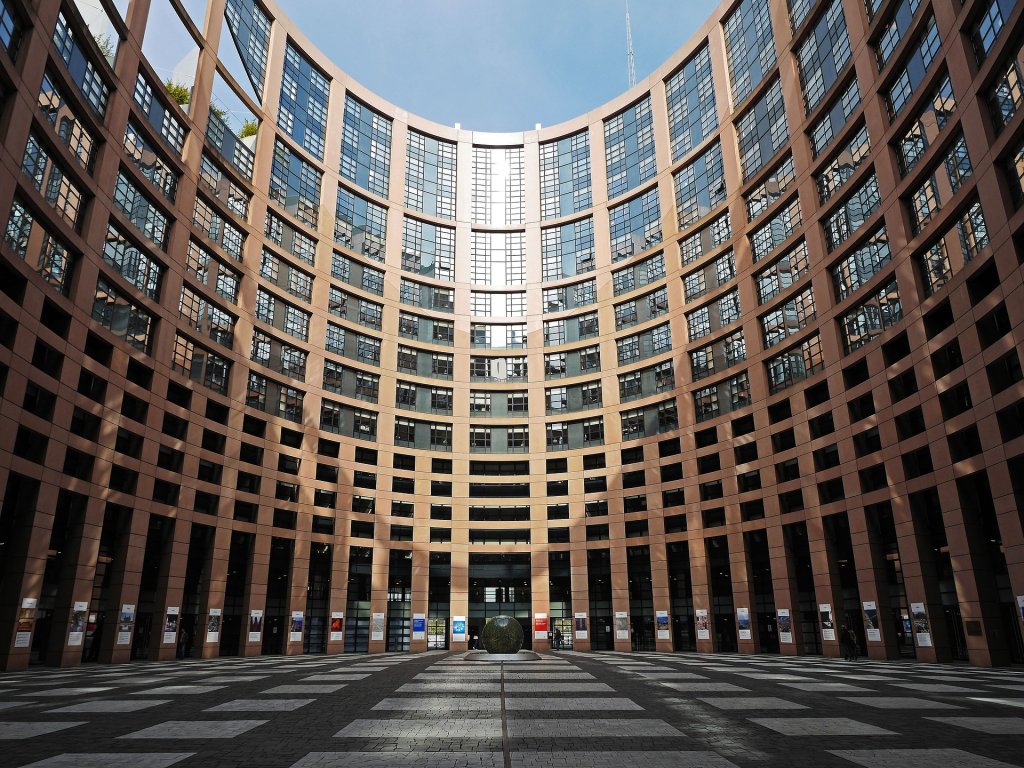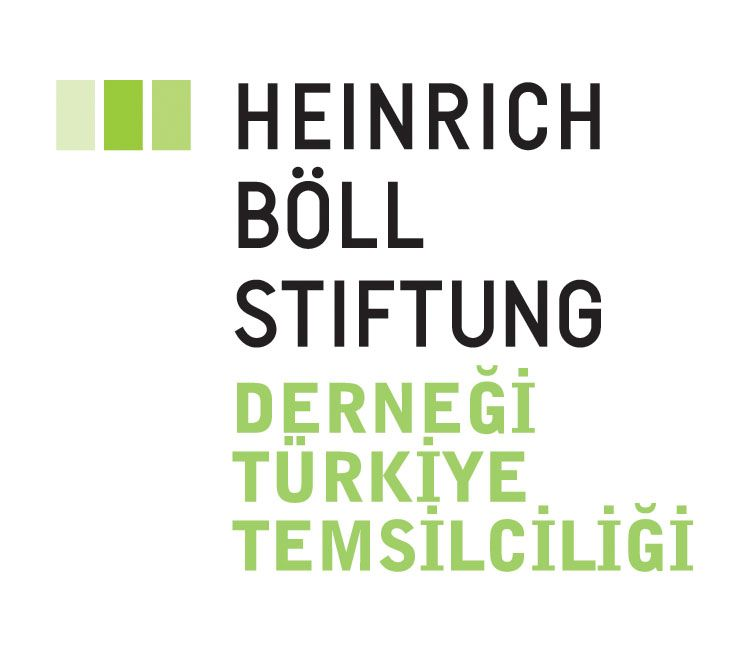
European politicians, bureaucrats, and the Turkish side have long argued that a lack of trust is the main problem in general with downs, rarely with ups, relations between Turkey and the European Union (EU). If we refresh our memories, among many examples, Turkey was denied candidate status at the Luxembourg Summit in 1997, when ten countries in Central and Eastern Europe, Cyprus and Malta were declared candidates, and EU members almost wholly closed their doors to Syrian migrants despite promises made under the Migration Deal in 2016. Turkey’s move away from
the political reform process and democratic regression within the scope of EU membership criteria and its failure to join the sanctions against Russia during the Ukraine War can be considered two examples of why the EU does not trust Turkey.
The crisis of trust was re-emphasized by participants from the EU and Turkey when a delegation, including foreign policy officials from Turkey’s opposition parties and academics, met with officials from the EU institutions in Brussels on 25-26 October 2022.[1] The direct and almost common message of the opposition representatives was that Turkey would turn its face to the EU after the elections and that the EU accession process, including a return to the EU membership goal and the democratization agenda required for this goal, was essential and could be considered as the first step to overcome the crisis of mutual trust. In this framework, the elements of the mindset transformation needed to overcome the trust problem between Turkey and the EU can be expressed as follows:
First of all, it is essential for the political elite and social forces in Turkey to understand that harmonization with universal values and the EU acquis, also defined as the EU enlargement criteria, is their choice and for the general good of society and that they should not expect miracles from the EU in terms of Turkey’s return to the reform agenda. Although the EU encourages candidate countries to comply with fundamental values such as democracy, the rule of law, and human rights, what matters is the candidate country’s intention to fulfill the criteria for membership, especially the political conditions. EU institutions have long criticized Turkey for this lack of purpose. Indeed, the EU Commission’s Turkey Report for 2022, released on 12 October 2022, emphasized that Turkey’s negative trend in the reform process has not changed and that Turkey continues to regress in the areas of democracy, the rule of law, fundamental rights, and judicial independence. As Turkey fulfills the requirements of a democratic rule of law that guarantees basic rights and freedoms, it will demonstrate its sincerity as a contributor to the resolution of this crisis of confidence.
On the other hand, the European Union should implement its normative enlargement policy, which it claims to be based on values and rules, without forgetting that its primary goal since the Treaty of Rome has been to establish the unity of the European “peoples”. To this end, it should listen to the Turkish public’s belief in the EU and their expectations regarding the EU process. According to the results of the “Perception of Europe and the European Union in Turkey” survey released by Global Academy in October 2022, 75.9% of the Turkish public supports Turkey’s EU membership. When asked about the reasons for this support, the main expectations of the public are the improvement of human rights (65.6%), a more democratic country (48.6%), higher living standards (54.3%), and increased welfare and economic development (38.7%). The responses to another question in this survey also show that the Turkish public identifies democracy and freedom (41.4%) and high levels of prosperity and economic development (21.2%) with the EU. Therefore, as supported by other public opinion polls, the expectations of the Turkish public for EU membership, which have solidified over the years, should be sensitively considered by EU politicians and bureaucrats. It should be kept in mind that a crisis of confidence increases when political concerns are prioritized over the demands of the majority of the Turkish public regarding the Union’s policies towards Turkey.
The European Union should review how it applies the principle of “solidarity”, which is the basis of its foreign and security policy, and should not undermine Turkey’s rights under international law while solidarizing with Greece and Cyprus in the context of border issues and maritime jurisdiction. In other words, as stated in the EU Treaty, while the EU promotes political solidarity among its members in international affairs (Article 24) and accordingly imports, for example, the individual foreign policy problems of Greece and Cyprus, the EU’s ignoring the principles of “equality” and “equity” dramatically reduces its credibility.
The fact that the officials in the EU institutions interviewed during the visit mentioned above insistently emphasized the importance of the solidarity mechanism among the members in their statements about Turkey has revealed how essential solidarity with Greece and Cyprus is for the EU. Therefore, the European Union should realize that while acting in the light of the principle of solidarity with Greece and Cyprus, especially on the Turkish-Greek border issues and maritime jurisdiction in the Eastern Mediterranean, it is deepening the crisis of trust by ignoring Turkey’s rights arising from international law.
The EU should also not confine its relations with Turkey to the settlement of the Greek-Turkish border disputes and the Cyprus issue, recognizing that these issues should be addressed at the bilateral or multilateral negotiating tables rather than at the EU or its mediation. It should be remembered that in the negotiations and subsequent accession of Greece (1981) and Cyprus (2004) to the EU, the resolution of the border issues or the Cyprus issue was not considered a determinant of the process, and an inconsistent enlargement policy should not be pursued in this context. Turkish-Greek matters can only be resolved peacefully and equitably through bilateral negotiation processes, the Cyprus problem through mutual dialogues of the two communities on the island, and the jurisdictional issues in the Eastern Mediterranean only through multilateral platforms. When the EU tries to impose the solution to these issues on Turkey unilaterally by considering only the interests of Greece and Cyprus, it is evident that the spiral of mistrust will become even more inextricable.
On the other hand, Turkey should act in line with the policies of its European allies regarding foreign and security policies, except in exceptional cases that may be contrary to its national interests. According to the EU Commission’s 2022 Turkey Report, Turkey’s alignment with the EU’s Common Foreign and Security Policy acquis decreased from 11% in 2021 to 7% in 2022. In the same report, Turkey’s unilateral foreign policy, which is independent of the EU’s common positions and joint actions, was criticized, noting, in particular, the S400 deal with Russia, Turkey’s non-participation in the sanctions against Russia, and the EU’s lack of support for Operation IRINI, which would affect the implementation of the UN arms embargo on Libya. Considering that Turkey is a strong NATO ally, that the EU and NATO currently have 21 associate members, and that these associate members generally pursue harmonized foreign and security policies, Turkey as a candidate country should cooperate with the EU in the areas of foreign policy and security – except in exceptional cases of national interest.
The EU should remove the technical areas of cooperation with Turkey from the context of political conditionality, act on the principle of “technical criteria in technical areas” in the enlargement process, and put an end to the limited and reserved application of functionalism, the intellectual framework of European integration, in the case of Turkey. In this context, no exceptional conditions should be imposed on Turkey in line with the EU’s June 2021 summit target, such as the modernization of the Customs Union, Turkey’s inclusion as a third country like the US and Canada in the PESCO projects, which are expected to make significant contributions to the EU in the field of the defense industry, and Turkey’s inclusion in the European Defense Fund. It should be kept in mind that cooperation in these areas benefits Turkey and the EU and that hindering coordination in technical areas fosters a crisis of confidence.
In conclusion, it is clear that a mindset transformation is needed for Turkey and the EU to demonstrate their sincerity toward each other. With this transformation outlined above, it will be possible to return to the accession process with its real meaning and purpose, not just for paper show. In this framework, the messages given by the foreign policy staff of the opposition parties in Brussels on democratization and a return to the EU goal can be regarded as a preliminary step to raise hopes.
[1] The observations in this paper on the meetings held within the scope of this visit organized by the Friedrich Ebert Foundation Turkey are the author’s personal accounts of the relevant meetings and do not constitute official and/or collective conclusions.

Sinem Akgül Açıkmeşe, Prof. Dr., Kadir Has University
Sinem Akgül Açıkmeşe is a Professor of International Relations and Jean Monnet Chair holder on Hybrid Threats in the EU at Kadir Has University (KHAS).She holds a BA in International Relations as well as an MA in European Union-International Relations from Ankara University. She studied at the European Institute of London School of Economics and Political Science (LSE) for her MSc degree in European Studies. She has completed her PhD in European Studies-International Relations at Ankara University (2008). She was a Jean Monnet fellow at LSE, Turkish Academy of Sciences fellow and visiting PhD student at London School of Economics, Sasakawa Young Leaders fellow, visiting scholar to IGCC-University of California-San Diego as a US Department of State Fellow, Black Sea Young Reformers fellow, visiting researcher at Stellenbosch University, visiting scholar at Harvard University (2017) in support of her research on Security Studies, EU foreign and neighbourhood policies specifically from a security perspective, European integration, enlargement and Turkey-EU relations. Prof. Açıkmeşe has a teaching experience of about 20 years, at various institutions including Ankara University and TOBB-University of Economics and Technology on a full-time capacity before she joined KHAS in 2011. She is currently the associate editor of European Review of International Studies,Governing Board Member as well as the Secretary-General of the International Relations Council of Turkey (IRCT) and served as a Member of the Governing Council of the International Studies Association (ISA) (2018-2020). She has coordinated and took part in several international research and exchange projects including EU-FP7 Marie-Curie Actions, Erasmus+ Strategic Partnerships and Jean Monnet Actions.
To cite this work: Sinem Akgül Açıkmeşe, “The Future of Turkey-EU Relations” Panorama, Online, 17 May 2023, https://www.uikpanorama.com/blog/2023/05/17/sae/

This article has been prepared with the support provided to the International Relations Council and the Global Academy by the Heinrich Böll Stiftung Association Turkey Representative within the scope of the project titled ‘Foreign Policy for the 21st Century; Peaceful, Equitable, and Dynamic Turkey’

“The European Commission’s support for the production of this publication does not constitute an endorsement of the contents, which reflect the views only of the authors, and the Commission cannot be held responsible for any use which may be made of the information contained therein.”
Copyright@UIKPanorama. All on-line and print rights reserved. Opinions expressed in works published by the Panorama belongs to the authors alone unless otherwise stated, and do not imply endorsement by the IRCT, Global Academy, or the Editors/Editorial Board of Panorama.

